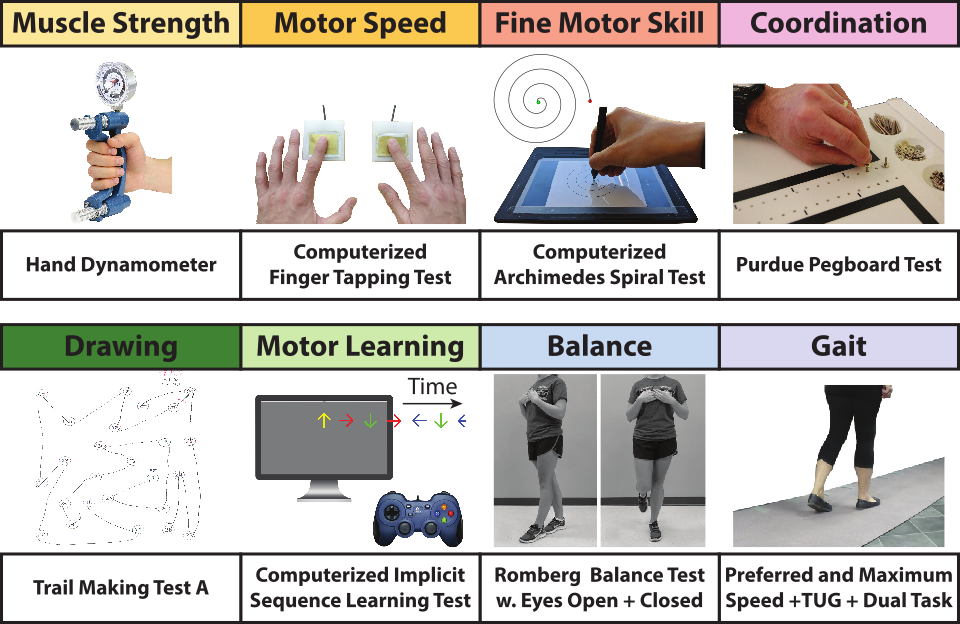Project Background
Alzheimer's disease (AD) is characterized by cognitive problems, specifically related to memory. Over the last decade, it has become apparent that AD and it's precursor Mild Cognitive Impairment (MCI) also present with problems in a variety of motor domains. Some of the most prominent motor deficits that have been linked to an increased risk for AD include slower walking speed, poorer balance, larger cognitive-motor dual-tasking cost, and weaker muscle strength.
To improve diagnostic models of AD and MCI, and to assist in trial enrichment for clinical trials that aim at developing medication for this neurodegenerative disorder, it is eminent that sensitive classification markers are being developed that could replace or augment existing tools. Combining ambulatory and strength measures increases predictive value for AD relative to single measures. This suggests that a motor profile composite score that weighs functions spanning the breadth of motor domains will have optimal predictive power. Machine learning can offer a data driven approach to identify the most optimal combination of motor measures to build a predictor.
In the current study, we are assessing individuals with MCI and AD, as well as a group of cognitively healthy older adults to a battery of cognitive and motor measures with the goal to build define the motor profile of MCI and AD, and to derive a sensitive and specific biomarker for this disorder. Additionally, participants complete an MRI scan of the brain that will be used to unravel the neural mechanisms of motor dysfunction in this population.
Student Role
In this project, the student responsibilities will include participant screening, assisting the study coordinator with data collection, data entry, and data cleaning. Participant screening involves contacting potential participants over the phone and screening them for eligibility using standardized questionnaires. Assisting with data collection includes helping the study coordinator administering cognitive and motor behavioral tests to participants and be present at the MRI scan. After a training period, the student may be able to lead data collections. Data entry is the entry of raw cognitive and motor behavioral values from the tests into a computer database. Data cleaning involves checking data for errors and correcting any observed errors.
Student Learning Outcomes and Benefits
The student will have the opportunity to learn about several aspects of conducting a scientific study. Additionally, the student has the opportunity to learn about cognition, motor functioning, different ways of measuring motor behavior, and brain imaging using MRI. They will also learn about Alzheimer's disease, Mild Cognitive Impairment and aging, how these relate to deficits in cognitive function and motor problems, and how this all links back to brain structure and function.

Vincent Koppelmans
In my experience students will have the most positive experience when they are working on something that they are genuinely interested in and which is not too repetitive. I therefore discuss with the student which part of the project they are most interested in, and I try not to have the student do the same task over and over again for long periods of time. Though weekly meetings with my students, that allow them to ask questions, I aim to evaluate their progress. I am personable and try to answer my student's emails within the same day. I always discuss the opportunity for the student to get something more concrete out of their work than just the experience. This could be for example a poster presentation at the undergraduate research symposium, or something else that they can put on their resume.
